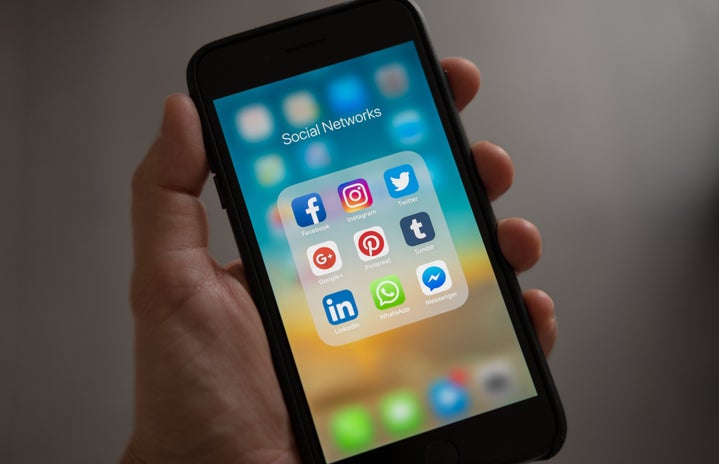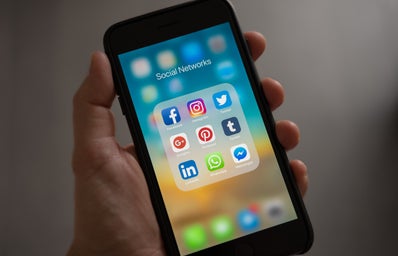Social media has been a formative proponent of Gen Z’s upbringing. Twitter, Tiktok, Snapchat, Instagram, and more have become our main connections to world news, diverse perspectives, and hundreds of strangers. Although these platforms have brought positivity and awareness to systemic issues, we now have delusions about what is real versus glorified.
Social media has been our escape from reality, and ironically, the platform to advertise our best realities. With cameras that can capture our happiest moments, and filters that can enhance our physical appearance, we can curate the most, “perfect” image of ourselves. Inevitably, social media has become a breeding ground for illusions, because we only showcase these high-quality, envious versions of ourselves. Once everyone posts their cream-of-the-crop moments, it perpetuates our need to outperform. Sometimes, our likes and follower count unconsciously influence us to work ten times as hard to craft the best images that will bring the most positive attention.
Insecurity and dissatisfaction are major risks of being chronically online, because we are vulnerable to self-comparison. When our peers post ten photos of their Spain trip, we look around our dull bedroom and think, “What life is this?” Cocooning in our room may have felt relaxing, but because we let it stand against our friends’ grand adventures, we viewed the quality of our time as lesser than.
Body image is also threatened in a world of AI, filters, and photoshop. People preach about not comparing themselves to Instagram models, but can you say the same about a fellow peer whose skin glows at all angles? Not just in one post, but in their whole profile?
We were never supposed to view so many attractive faces in our lives, but social media has given us this access. We can’t tell the difference between natural and artificial beauty anymore because of the sheer advancement of face-altering technology. We could fall victim to insecurities that grew from heavily edited photos, but never know it’s artificial.
Gen Z is well aware of social media’s facade, but we still get reeled into it; how can we resist when our connection to the world has been cultivated through our screens for years? We all have heard the advice to disconnect, go outside, and meet people in person, but this isn’t realistic when our livelihoods have been heavily intertwined with social media. Rather, we can remind ourselves that what is in the 2D cannot describe a person’s 3D. We only see a small sliver into a person’s entire life on their profiles, and we only give it value when we forget to value our personal lives.
By not looking at the hundreds of posts of people’s vacations, I’ve enjoyed my time baking, sleeping in, shopping, and more. It’s obvious these activities are not as glamorous as traveling, but it’s felt easier to find value in my hobbies. By not looking at the plethora of beautiful, curated models, I’ve been able to focus more on myself and maintaining my natural appearance. The trick to not falling prey to social media is weighing more time on ourselves than it. We can’t run away from the sliver of truth presented to us, but we can indulge in a bigger truth, our own lives, that subjectively precedes the activities of others.




